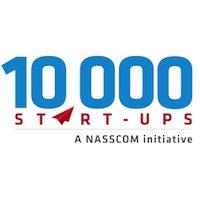
Nasscom 10 000 Start-ups
View Brand PublisherNASSCOM 10,000 Startups’ Code for the Next Billion second stage begins in full flow
While startups contribute to the economy in several ways, some create more impact than others because their businesses directly contribute to solving a social or socioeconomic problem, and therefore make the world a better place. One program that’s channeling technology for the good of India’s vast population is Code for the Next Billion 2018 (CFNB 2018), a joint initiative by Facebook and Nasscom 10,000 Startups. The program trains social entrepreneurs, who are living proof that businesses can be socially and environmentally conscious too.
NASSCOM 10,000 Startups had earlier announced the list of 10 startups selected for the second edition of CFNB 2018. The second phase of the six-month immersive programme kicked off last week at the 10,000 Startups Warehouse in Bengaluru, where some big names from the industry spent three days mentoring the chosen startups. The mentoring sessions mainly focused on guiding the participants with their design ideas and helping them plan better.
The startups also got to interact closely with mentors from Facebook, NASSCOM 10,000 Startups, Startup India Hub, and Design4India.
Here’s a sneak peek into what happened during the sessions.
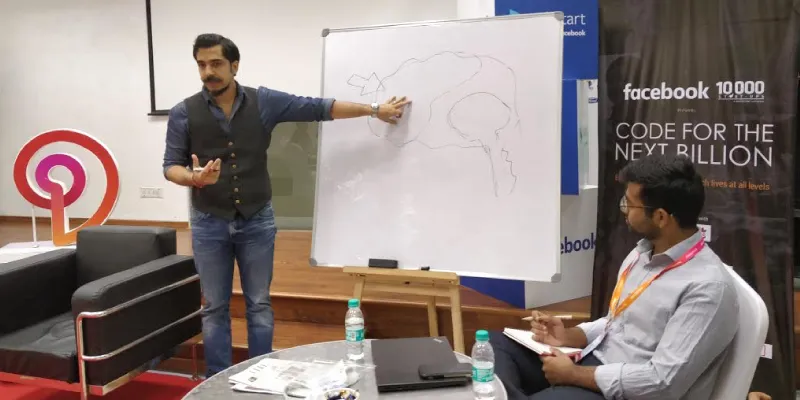
(Left) On Day 2 of the NASSCOM 10,000 Startups Code for the Next Billion mentoring sessions, the focus was on design philosophy and how the individual mind functions. Amber Krishnan, VP of User Experience at fintech bigwig PayU India conducted a product design bootcamp.
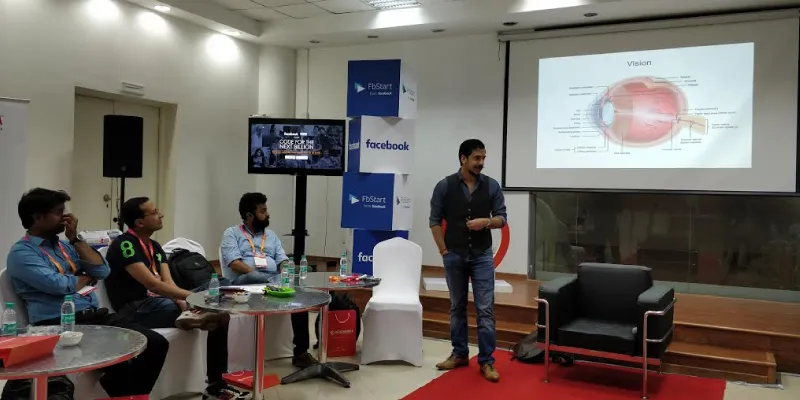
Day 2: During his session, Amber talked about cognitive thinking and the hold it has over designing. “They have interesting ideas but building a value proposition around their ideas is key. So, I’m not focusing on things like UI. Instead, I’m talking Psychology and how one can use it to build and strategize their design,” Amber said.
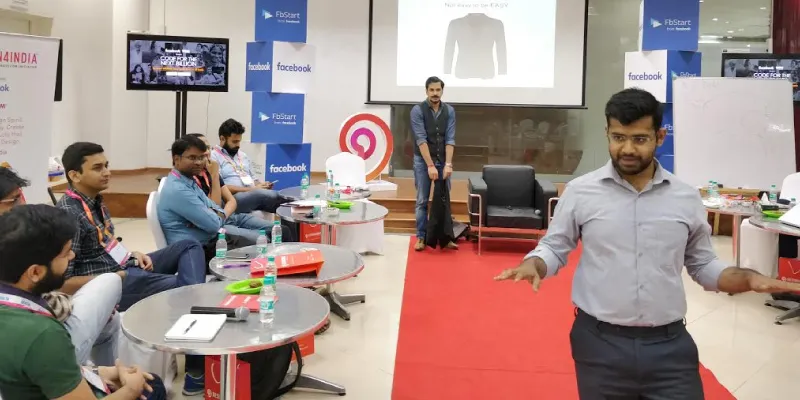
Day 2: Amber (in the background) spoke to CFNB participants about the importance of making things easier for their users. He called on a volunteer to face the other way, and explain what a jacket is to him as if he were explaining it to a first-time user. While the activity garnered plenty of laughs and fun, participants realised how difficult it was. “It’s difficult to make things easy. You need to keep that in mind while you’re designing,” Amber emphasised.
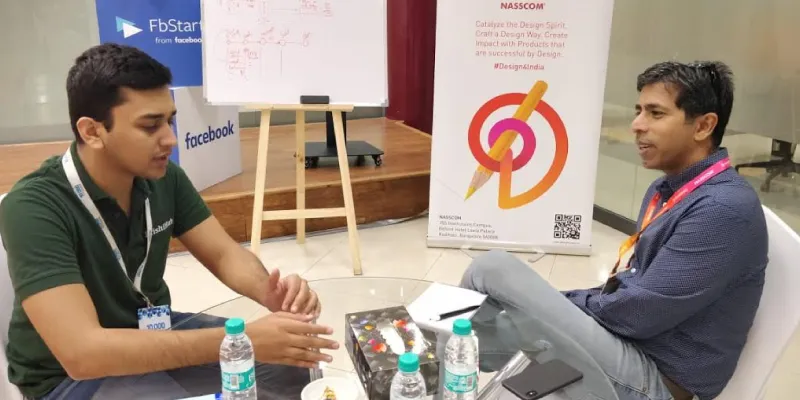
Day 3 saw Design4India’s mentors having one-on-one interactions with the CFNB participants. Mentors included Savy Aluvathingal (right), Head of Experience Design at Moonraft, Naveen Mamgain, Usability Architect at Railyatri, Shama Rasal, UX Mentor at Springboard, Nitin Kumar, User Experience Design Expert at SAP, Sahil Karkhanis, Senior Director of Product Design at Cleartrip, Kranti M, Director of Strategic Consulting at UX Design Labs, Sameer Chavan, Co-Founder at Particle, Nagesh Susarla, Senior Manager of User Experience at Cisco, and Riyaj Shaikh, Faculty member at Srishti Institute of Art, Design and Technology.
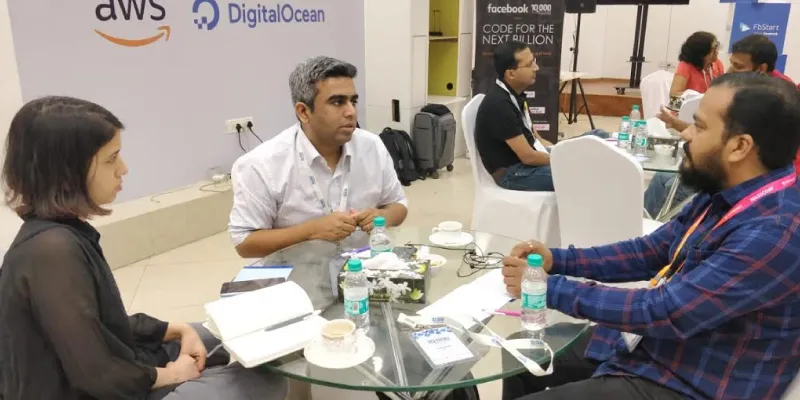
Day 3: During the interactions, participants discussed their design plans with mentors in detail, brainstormed ideas and sought guidance on their design journey. Nitin Kumar (far right), User Experience Design Expert at SAP, mentor for TheTeacherApp, said he was looking forward to helping them design new ideas “This programme is giving both startups and mentors a great platform to work together. They all have great ideas, but now they’ll also have access to learn how to design properly. It also help them become aware of how important user experience is, something that is not looked at in India very closely,” he explained.
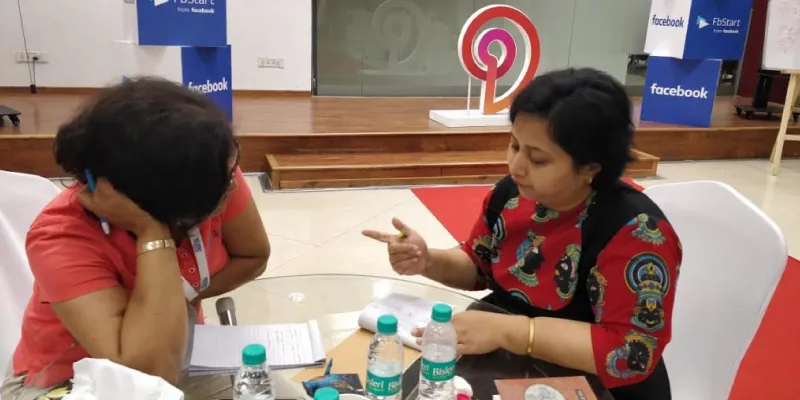
Day 3: The Design4India mentors were excited to work with the participants and participate in their journey of learning and innovation. Shama Rasal (right), UX Mentor at Springboard, who was mentoring Helper4u, said, “I’ve worked with plenty of startups, and I’ve learnt that the most gratifying thing is to be able to do something for people. All the problems that these startups are solving are things that we all crib about at some point of time. So, it’s a nice feeling to know that I am contributing in some manner.”
The next phases of the programme will see these social entrepreneurs be a part of growth hacking mentorship sessions and investor pitching.







